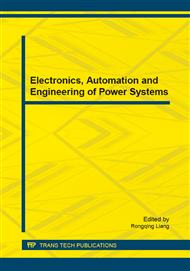p.558
p.562
p.568
p.572
p.577
p.581
p.586
p.590
p.596
Acquisition Method of Typical Time Course for Stationary Signal Basing on Frequency Weighting
Abstract:
The cab acoustic response, which could be considered to be random and stationary, determines the riding comfort of the excavator. In order to get the most useful information from the actual cab noise signal, an acquisition method of typical time course for a stationary signal was proposed in this paper. Firstly, a series of de-noising preprocessing was applied on the test signal. Then, the stationarity and ergodicity of that were examined via runs test method. Finally, combining with FFT, IFFT and the frequency weighting, the typical time course was obtained. The results show that the statistical parameters and spectral characteristics of the obtained typical time course are consistent with those of the measured signal, which means that the obtained one could be regarded as a representation of the actual signal for further analyzing more effectively.
Info:
Periodical:
Pages:
577-580
DOI:
Citation:
Online since:
February 2015
Authors:
Price:
Сopyright:
© 2015 Trans Tech Publications Ltd. All Rights Reserved
Share:
Citation:


